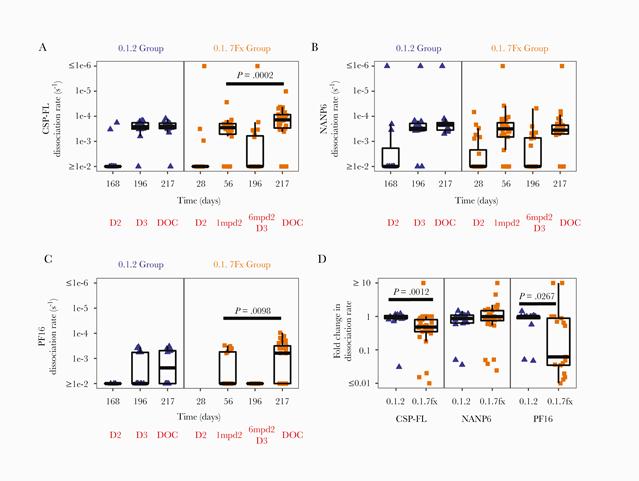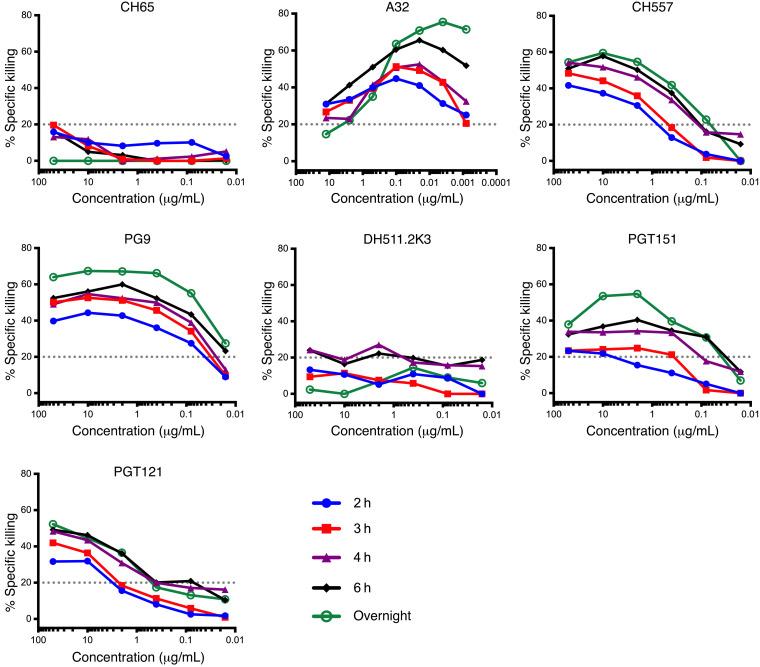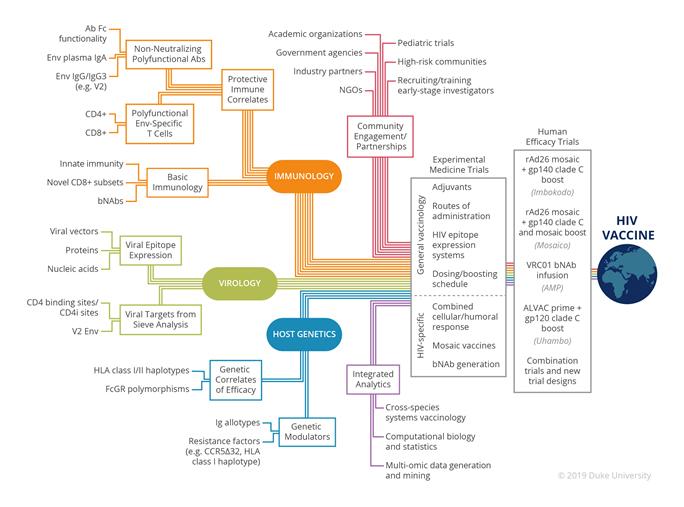Our investigators are hard at work contributing to the global library of scientific understand across a variety of disciplines in quantitative and immunological research. Below you will find an archive of our most recent publications.
All Publications:
Magnitude, Specificity, and Avidity of Sporozoite-Specific Antibodies Associate With Protection Status and Distinguish Among RTS,S/AS01 Dose Regimens
Background
The malaria vaccine, RTS,S/AS01, demonstrated an enhanced efficacy (86.7%) in a delayed third fractional dose (0.1.7Fx) regimen in controlled human malaria infection trials compared with a standard full-dose (0.1.2) regimen (62.5%). To understand the humoral component of the RTS,S/AS01 vaccine-induced protection against sporozoite infection in these 2 regimens, we investigated the serum antibody dynamics of 0.1.2 and 0.1.7Fx groups vaccinees.
Methods
Improved killing of HIV-infected cells using three neutralizing and non-neutralizing antibodies
The correlation of HIV-specific antibody-dependent cellular cytotoxicity (ADCC) responses with protection from and delayed progression of HIV-1 infection provides a rationale to leverage ADCC-mediating antibodies for treatment purposes. We evaluated ADCC mediated by different combinations of 2 to 6 neutralizing and non-neutralizing anti-HIV-1 Envelope (Env) mAbs, using concentrations ≤ 1 μg/mL, to identify combinations effective at targeting latent reservoir HIV-1 viruses from 10 individuals.
Characterization of Rhesus Macaque Liver-Resident CD49a + NK Cells During Retrovirus Infections
CD49a+ tissue resident NK cells have been implicated in memory-like NK cell responses, but while this population is well-characterized in mice and in humans, they are poorly described in non-human primates (NHP) which are particularly critical for modeling human viral infections. Others and we have shown that memory-like NK cells are enriched in the liver and because of the importance of NHP in modeling HIV infection, understanding the immunobiology of CD49a+ NK cells in SIV-infected rhesus macaques is critical to explore the role of this cell type in retroviral infections.
Delineation and Modulation of the Natural Killer Cell Transcriptome in Rhesus Macaques During ZIKV and SIV Infections
Natural killer (NK) cells are crucial regulators of antiviral and anti-tumor immune responses. Although in humans some NK cell transcriptional programs are relatively well-established, NK cell transcriptional networks in non-human primates (NHP) remain poorly delineated. Here we performed RNA-Seq experiments using purified NK cells from experimentally naïve rhesus macaques, providing the first transcriptional characterization of pure NK cells in any NHP species.
Functional Perturbation of Mucosal Group 3 Innate Lymphoid and Natural Killer Cells in Simian-Human Immunodeficiency Virus/Simian Immunodeficiency Virus-Infected Infant Rhesus Macaques
Mother-to-child transmission of human immunodeficiency virus type 1 (HIV-1) via breastfeeding is responsible for nearly half of new infections of children with HIV. Although innate lymphoid cells (ILC) and natural killer (NK) cells are found throughout the oral mucosae, the effects of HIV/simian-human immunodeficiency virus (SHIV) in these tissues are largely unknown.
Brief Report: Decreased JC Virus-Specific Antibody-Dependent Cellular Cytotoxicity in HIV-Seropositive PML Survivors
Background: Progressive multifocal leukoencephalopathy (PML) is an often fatal disease caused by JC virus (JCV) in severely immunocompromised patients, including HIV patients. Development of therapeutics to prevent or treat PML is an urgent medical need. While JCV-specific T cells are crucial to control JCV and recover from PML, the role played by antibodies remains unclear. Anti-JCV antibodies, including potent neutralizing antibodies, can be detected in most infected adults, yet in PML patients, JCV seems to escape from neutralization.
Semaphorin 7A modulates cytokine-induced memory-like responses by human natural killer cells
Cytokine-induced memory-like (CIML) NK cells are endowed with the capacity to mediate enhanced effector functions upon cytokine or activating receptor restimulation for several weeks following short-term preactivation with IL-12, IL-15, and IL-18. Promising results from a first-in-human clinical trial highlighted the clinical potential of CIML NK cells as adoptive immunotherapy for patients with hematologic malignancies. However, the mechanisms underlying CIML NK cell differentiation and increased functionality remain incompletely understood.
Simian Immunodeficiency Virus Infection Modulates CD94 + (KLRD1 +) NK Cells in Rhesus Macaques
Recently, we and others have shown that natural killer (NK) cells exhibit memory-like recall responses against cytomegalovirus (CMV) and human immunodeficiency/virus simian immunodeficiency virus (HIV/SIV) infections. Although the mechanism(s) have not been fully delineated, several groups have shown that the activating receptor NKG2C is elevated on NK cells in the context of rhesus CMV (rhCMV) or human CMV (hCMV) infections. CD94, which heterodimerizes with NKG2C is also linked to adaptive NK cell responses.


